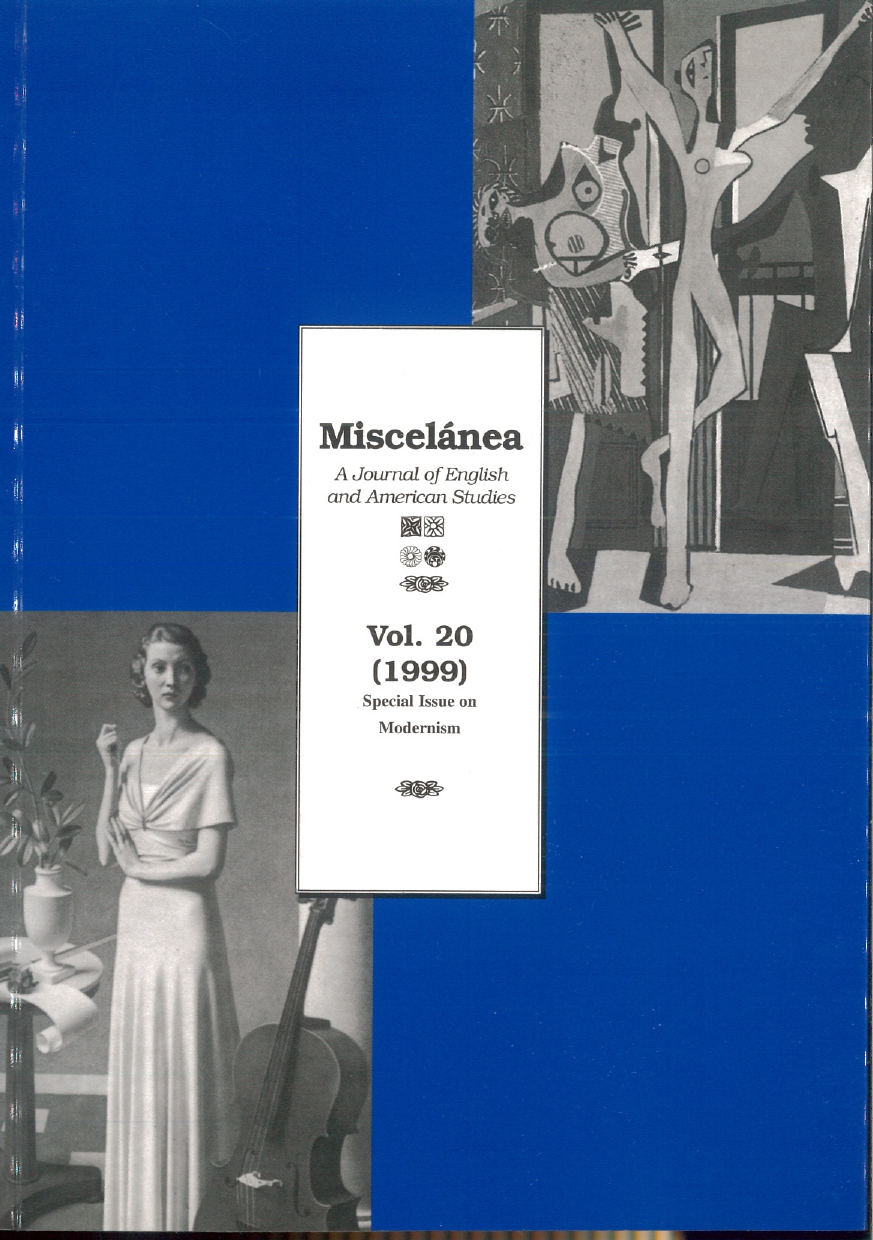The European Radio Broadcasts of T.S. Eliot
DOI:
https://doi.org/10.26754/ojs_misc/mj.199911258Resumen
Aunque T. S. Eliot es una de las figuras más estudiadas de la historia de la literatura, las 80-90 emisiones radiofónicas que realizó entre 1929 y 1964 aún no han recibido atención crítica. Es menos sorprendente que Eliot se sintiera atraído por la radio que el hecho de que, a partir de 1941, dirigiera cada vez más sus emisiones al público europeo y asiático. Después de todo, muchos otros escritores y poetas modernistas experimentaron con la radio (aunque pocos se comprometieron con este medio de forma tan sostenida como Eliot). Si las emisiones de Eliot en el extranjero se ajustaban a la estudiada ecumenicidad de sus otras charlas ante el micrófono, al dirigirse al público alemán o de Europa del Este ponían, no obstante, a prueba los límites ecuménicos. Hoy, a finales de siglo, la idea de «Europa» tiene más vigencia que nunca, pero con el fin de la Guerra Fría tenemos que esforzarnos para oír a alguien insistir en la unidad de la «cultura» europea. En este sentido, las emisiones de Eliot constituyen un momento modernista único: un intento de utilizar una nueva tecnología para reconocer un sueño por el que el resto del mundo estaba perdiendo rápidamente el interés.
Mostras las descargas
Referencias
BROOKER, Jewel Spears. (ed.). 1999. T. S. Eliot and the Turning World Houndmills: Macmillan.
BRIGGS, Asa. 1961-1995. The History of Broadcasting in the United Kingdom. Vols I-V. London and New York: Oxford U. P. DOI: https://doi.org/10.1093/acprof:oso/9780192129260.001.0001
CARPENTER, Humphrey. 1988. A Serious Character: The Life of Ezra Pound. Boston: Houghton Mifflin.
COYLE, Michael. 1998. ""This rather elusory broadcast technique": T. S. Eliot and the Genre of the Radio Talk". ANQ II. 4 (Fall 1998): 32-42. DOI: https://doi.org/10.1080/08957699809601267
---. 1999a. "Checklist of the Radio Broadcasts of T. S. Eliot". In Brooker, J. s. (ed.).
---. 1999b. "Eliot on the Air: "Culture" and the Challenges of Mass Communication". In Brooker, J. S. (ed.).
DOOB, Leonard. (ed.). 1978. Ezra Pound Speaking: Radio Speeches of World War II. Westport, CT: Greenwood Press.
ELIOT, T. S. 1939. "Last Words". Criterion XVIII. 71 (Jan. 1939): 269-270.
---. 1942a. "In Praise of Kipling's Verse". Harper's 184. 1106 (July 1942): 149-157.
---. 1942b. "T. S. Eliot on Poetry in Wartime". Common Sense XI. 10 (October 1942): 351.
---. 1953. "Literature". In Law, R. (ed.). The Unity of European Culture. London: William Clowes & Sons, Ltd: 19-21.
---. 1957. On Poetry and Poets. London: Faber & Faber.
---. 1968. Christianity and Culture. Two Noted Books Complete in One Volume: The Idea of A Christian Society, and Notes towards the Definition of Culture. New York: Harvest/ Harcourt, Brace and Jovanovich.
GALLUP, Donald. 1969. T. S. Eliot: A Bibliography. Revised and Extended Edition. New York: Harcourt, Brace & World.
HEYMAN, C. David. 1976. Ezra Pound: The Last Rower: A Political Profile. New York: Richard Seaver/ Viking.
PAULU, Burton. 1956. British Broadcasting: Radio and Television in the United Kingdom. Minneapolis: University of Minnesota Press.
PAWLEY, Edward. 1972; BBC Engineering, 1922-72. London: BBC.
SCANELL, Paddy and David CARDIFF. 1991. A Social History of British Broadcasting, Volumne One 1929-1939: Serving the Nation. London: Basil Blackwell.
VIWANATHAN, Gauri. 1989. Masks of Conquest: Literary Study and British Rule in India. New York: Columbia U.P.
Descargas
Publicado
Número
Sección
Licencia

Esta obra está bajo una licencia internacional Creative Commons Atribución-NoComercial 4.0.


